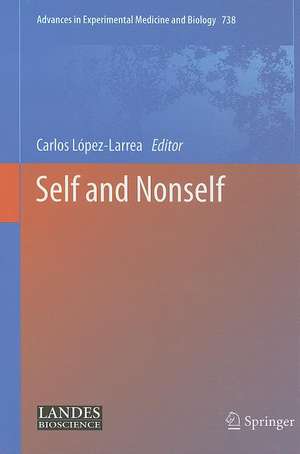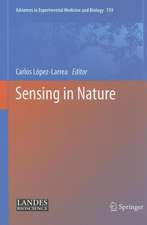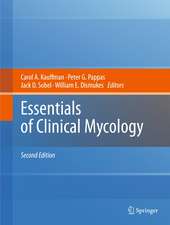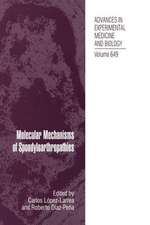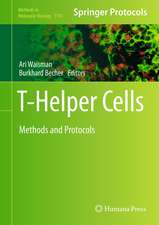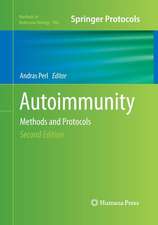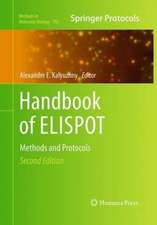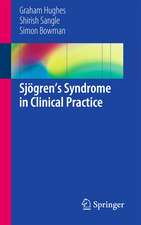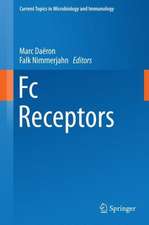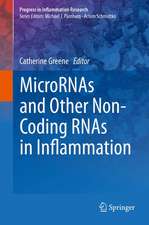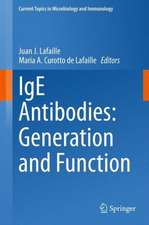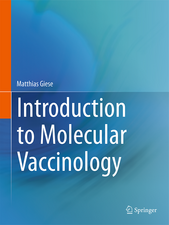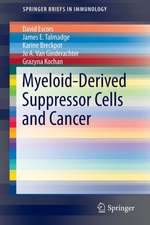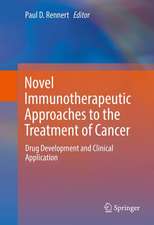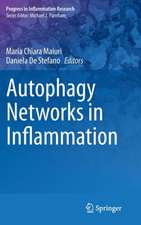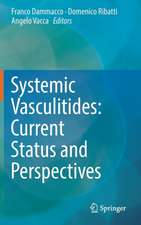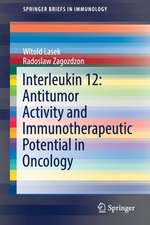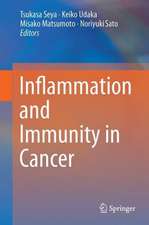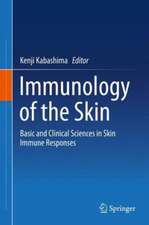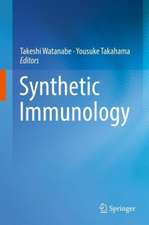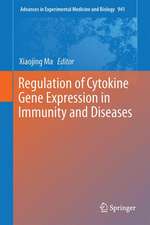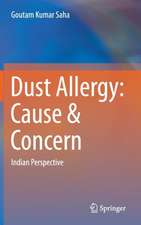Self and Nonself: Advances in Experimental Medicine and Biology, cartea 738
Editat de Carlos López-Larreaen Limba Engleză Hardback – 30 ian 2012
| Toate formatele și edițiile | Preț | Express |
|---|---|---|
| Paperback (1) | 1417.02 lei 6-8 săpt. | |
| Springer – 23 aug 2016 | 1417.02 lei 6-8 săpt. | |
| Hardback (1) | 1423.95 lei 3-5 săpt. | |
| Springer – 30 ian 2012 | 1423.95 lei 3-5 săpt. |
Din seria Advances in Experimental Medicine and Biology
- 9%
 Preț: 719.60 lei
Preț: 719.60 lei - 20%
 Preț: 691.93 lei
Preț: 691.93 lei - 5%
 Preț: 717.00 lei
Preț: 717.00 lei - 5%
 Preț: 716.28 lei
Preț: 716.28 lei - 5%
 Preț: 717.20 lei
Preț: 717.20 lei - 15%
 Preț: 640.24 lei
Preț: 640.24 lei - 5%
 Preț: 1113.83 lei
Preț: 1113.83 lei - 5%
 Preț: 715.71 lei
Preț: 715.71 lei - 5%
 Preț: 820.43 lei
Preț: 820.43 lei - 15%
 Preț: 641.38 lei
Preț: 641.38 lei - 5%
 Preț: 716.28 lei
Preț: 716.28 lei - 5%
 Preț: 523.99 lei
Preț: 523.99 lei - 5%
 Preț: 1031.00 lei
Preț: 1031.00 lei - 5%
 Preț: 717.00 lei
Preț: 717.00 lei - 5%
 Preț: 715.35 lei
Preț: 715.35 lei - 20%
 Preț: 1161.71 lei
Preț: 1161.71 lei - 5%
 Preț: 1170.51 lei
Preț: 1170.51 lei - 18%
 Preț: 1119.87 lei
Preț: 1119.87 lei - 5%
 Preț: 1288.48 lei
Preț: 1288.48 lei - 5%
 Preț: 1164.67 lei
Preț: 1164.67 lei - 5%
 Preț: 1101.73 lei
Preț: 1101.73 lei - 18%
 Preț: 1123.67 lei
Preț: 1123.67 lei - 5%
 Preț: 1435.64 lei
Preț: 1435.64 lei - 20%
 Preț: 1044.10 lei
Preț: 1044.10 lei - 18%
 Preț: 946.39 lei
Preț: 946.39 lei - 5%
 Preț: 292.57 lei
Preț: 292.57 lei - 18%
 Preț: 957.62 lei
Preț: 957.62 lei - 18%
 Preț: 1235.76 lei
Preț: 1235.76 lei - 5%
 Preț: 1231.55 lei
Preț: 1231.55 lei - 5%
 Preț: 1292.30 lei
Preț: 1292.30 lei - 5%
 Preț: 1102.10 lei
Preț: 1102.10 lei - 18%
 Preț: 1132.81 lei
Preț: 1132.81 lei - 5%
 Preț: 1165.19 lei
Preț: 1165.19 lei - 5%
 Preț: 1418.48 lei
Preț: 1418.48 lei - 5%
 Preț: 1305.63 lei
Preț: 1305.63 lei - 18%
 Preț: 1417.72 lei
Preț: 1417.72 lei - 18%
 Preț: 1412.99 lei
Preț: 1412.99 lei - 24%
 Preț: 806.16 lei
Preț: 806.16 lei - 18%
 Preț: 1243.29 lei
Preț: 1243.29 lei - 5%
 Preț: 1429.44 lei
Preț: 1429.44 lei - 5%
 Preț: 1618.70 lei
Preț: 1618.70 lei - 5%
 Preț: 1305.12 lei
Preț: 1305.12 lei - 18%
 Preț: 1124.92 lei
Preț: 1124.92 lei - 5%
 Preț: 1097.54 lei
Preț: 1097.54 lei - 15%
 Preț: 649.87 lei
Preț: 649.87 lei - 5%
 Preț: 1097.54 lei
Preț: 1097.54 lei - 18%
 Preț: 945.79 lei
Preț: 945.79 lei - 5%
 Preț: 1123.16 lei
Preț: 1123.16 lei
Preț: 1423.95 lei
Preț vechi: 1498.90 lei
-5% Nou
Puncte Express: 2136
Preț estimativ în valută:
272.51€ • 283.45$ • 224.97£
272.51€ • 283.45$ • 224.97£
Carte disponibilă
Livrare economică 24 martie-07 aprilie
Preluare comenzi: 021 569.72.76
Specificații
ISBN-13: 9781461416791
ISBN-10: 1461416795
Pagini: 340
Ilustrații: XXII, 320 p.
Dimensiuni: 178 x 254 x 25 mm
Greutate: 0.77 kg
Ediția:2012
Editura: Springer
Colecția Springer
Seria Advances in Experimental Medicine and Biology
Locul publicării:New York, NY, United States
ISBN-10: 1461416795
Pagini: 340
Ilustrații: XXII, 320 p.
Dimensiuni: 178 x 254 x 25 mm
Greutate: 0.77 kg
Ediția:2012
Editura: Springer
Colecția Springer
Seria Advances in Experimental Medicine and Biology
Locul publicării:New York, NY, United States
Public țintă
Professional/practitionerCuprins
The Origin of the Bacterial Immune Response.- The Evolution of Self During the Transition to Multicellularity.- Glyconectin Glycans as the Self-Assembling Nano-Molecular-Velcrosystem Mediating Self-Nonself Recognition and Adhesion Implicated in Evolution of Multicellularity.- Neglected Biological Features in Cnidarians Self-Nonself Recognition.- Intracellular Inflammatory Sensors For Foreign Invaders and Substances of Self-Origin.- Nonself Perception in Plant Innate Immunity.- How Did Flowering Plants Learn to Avoid Blind Date Mistakes? Self‑Incompatibility in Plants and Comparisons with Nonself Rejection in the Immune Response.- Signaling Pathways that Regulate Life and Cell Death: Evolution of Apoptosis in the Context of Self‑Defense.- Sensing Necrotic Cells.- Sensing Endoplasmic Reticulum Stress.- Autophagy and Self-Defense.- Viruses and Host Evolution: Virus‑Mediated Self Identity.- The Evolution of Adaptive Immunity.- Epigenetic Code and Self-Identity.- Viral Immunomodulatory Proteins: Usurping Host Genes as a Survival Strategy.- The Emergence of the Major Histocompatilibility Complex.- MHC Signaling During Social Communication.
Notă biografică
Carlos López-Larrea is Professor of Immunology (Oviedo, Spain) and currently Head of the Department of Immunology at the Hospital Universitario Central de Asturias (Oviedo, Spain). He is a world expert on spondyloarthropathies (SpA), in particular genetic (MHC) and genetic factors that influence the development of the disease. The main research interests of his group also currently include the study of epigenetic mechanisms involved in autoimmune diseases and the role of innate immunity in organ transplantation tolerance. He is a member of several international scientific organizations and board member of different scientific journals. He has published more than 150 international papers and books related to immunology and spondylaorthropathies.
Caracteristici
Covers different aspects of the emergence of immune systems in the evolution of life Focuses on the origin of the immune response during the development of multicellularity Presents an integrated view of self and nonself recognition systems in the context of evolution
